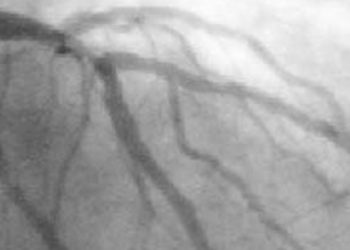bpMRI associated with higher false positive rate than PSA for prostate cancer screening
1. In this decision model analysis, biparametric MRI (bpMRI) testing led to an increased rate of overdiagnosis and false positives compared to a first-line prostate-specific antigen (PSA) test for prostate cancer (PCa).
2. There were more life years saved when using bpMRI compared to other screening techniques.
Evidence Rating Level: 2 (Good)
Study Rundown: Many cancer screenings employ imaging-based techniques; however, PCa screening typically involves first-line biomarker testing and PSA. First-line bpMRI is a screening technique that has been proposed as an alternative to previously used tools. The Fred Hutchinson Cancer Center PCa microstimulation model was used to assess different screening techniques using different first-line tests (such as PSA or bpMRI), different biopsy criteria, and different imaging schemes. Since the average age of men when they start getting tested for prostate cancer is around 55 years, the model simulated a cohort of men aged 55 years old who had not yet undergone any screening or PCa diagnosis. Different measures, such as overdiagnoses and lives saved, were used to compare the effectiveness of the different screening techniques, while differences in costs divided by differences in quality-adjusted life-years (QALYs) and net monetary benefits (NMBs) were used to measure cost-effectiveness. The study was limited by the Fred Hutchinson Cancer Center model as it relies on older data and thus a different grading practice. In summary, PCa screenings using first-line bpMRI were associated with a greater number of biopsies and overdiagnosis without a corresponding decrease in mortality or price, compared with first-line PSA screening and reflex mpMRI.
Click here to read this study in AIM
In-Depth [decision model analysis]: A decision model was used to determine the effectiveness of bpMRI as a screening tool for prostate cancer in men of the appropriate testing age. Using bpMRI led to significantly fewer false-negative biopsies; however, it also led to a greater number of overall biopsy referrals and false-positive biopsy referrals than first-line PSA testing, regardless of mpMRI use. Specifically, compared to the first-line PSA screening techniques, two to three more lives saved 10-30 more years of life added for 1,000 men (4 to 11 days per person), and 38-124 overdiagnoses were added. As a result, first-line bpMRI led to more biopsies and diagnoses, leading to a reduced number of deaths when compared to PSA-based techniques. Although there were more diagnoses, many were overdiagnoses that did not lead to a large increase in lives or years of lives saved. The use of bpMRI strategies always led to greater life years and increased costs, compared to first-line PSA strategies. Although bpMRI screening provides some good results, the microstimulation model proved that it leads to many false-positive tests, more biopsies, and overdiagnosis. Even if bpMRI was free, it was still not as cost-effective as other screening strategies, such as first-line PSA testing. This study shows that to improve the effectiveness of a screening technique, it is critical to reduce overdiagnosis. Although bpMRI was ineffective for this study, it shows promising results for the future with its role as a reflex test.
Image: PD
©2024 2 Minute Medicine, Inc. All rights reserved. No works may be reproduced without expressed written consent from 2 Minute Medicine, Inc. Inquire about licensing here. No article should be construed as medical advice and is not intended as such by the authors or by 2 Minute Medicine, Inc.




![2 Minute Medicine: Pharma Roundup: Price Hikes, Breakthrough Approvals, Legal Showdowns, Biotech Expansion, and Europe’s Pricing Debate [May 12nd, 2025]](https://www.2minutemedicine.com/wp-content/uploads/2025/05/ChatGPT-Image-May-12-2025-at-10_22_23-AM-350x250.png)


